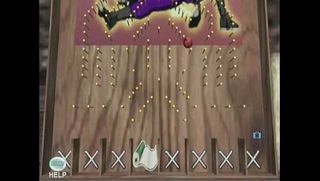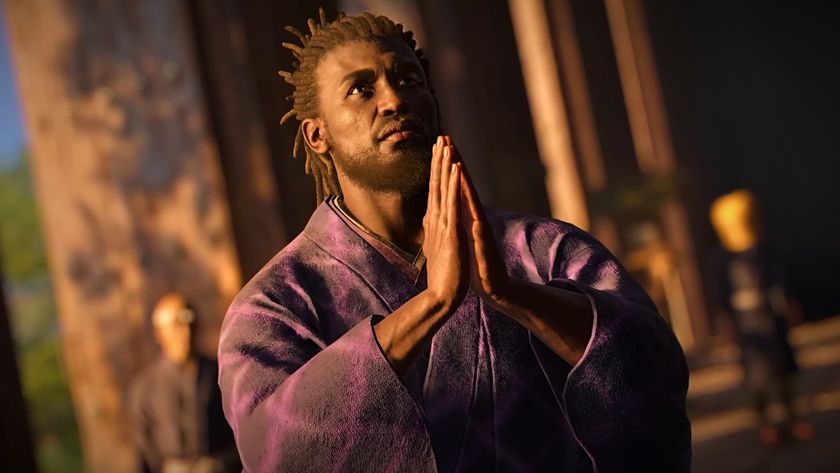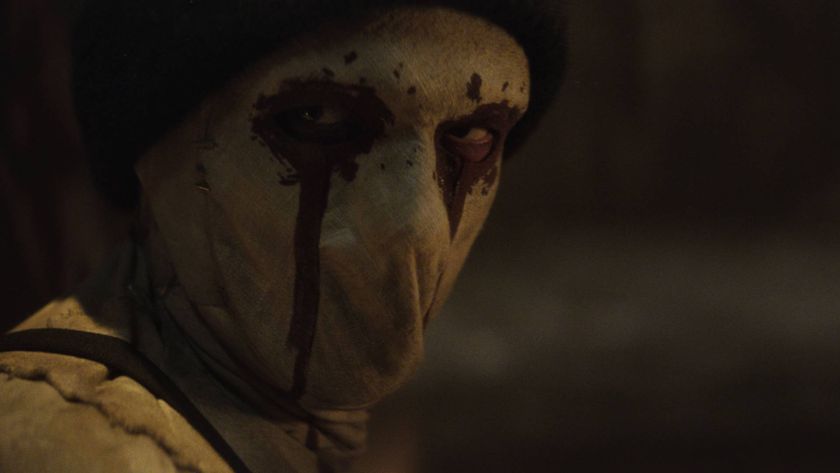Why I Love: Shenmue 2's Lucky Hit
My time working the Lucky Hit booth in Shenmue 2 usually went something like this:
"Hey, you there! You, in the shirt! Do you want to try a game of Lucky Hit? You know you want to wager $50 bucks on this low-rent Plinko rip-off someone cobbled together in their basement! No? Ok, keep walking. I'm just going to stare at this wall, then. Oooh, someone else! Hey, you there!"
And so on.
Of course, Ryo Hazuki, player character of Shenmue 2 and midway barker 'extraordinaire', was only cycling through a handful of generic attempts to lure potential suckers into a totally fair and in no way rigged game of chance - usually some permutation of "How about a game of Lucky Hit?" I was filling in the gaps myself, as I stood there for five, ten, 15 minutes or more, trying to earn enough cash to make it another day on the unforgiving streets of Hong Kong. I was 18 when I first played Shenmue 2, and this was my virtual part-time job, which I performed during the free time I had from my actual part-time job. And as with any repetitive, soul-sucking, low-paying, low-skill task, the mind tends to wander.

"I wonder what capsule toys I can pick up after I'm done with this job," I say to myself while mashing the button on the Xbox controller, beckoning anyone who will listen over to my ramshackle gambling stand. "I should get a round or two of OutRun in before the day is over, too. That should leave me with enough cash for the day's rent." As an 18-year-old with little to tie him down, Ryo is a man with few responsibilities (and being an 18-year-old myself, I could relate). He may be on the hunt for the man who killed his father, but he's not exactly on a time crunch, as each game in the series takes place over the course of several months. He's allowed to wander through the streets at his own pace, his ultimate goal forever in the back of his mind, but his quest to avenge his father is as much about the journey as it is the destination. He still has to survive, though, which of course means paying for a roof over his head, putting some food in his belly, and buying the odd figurine or two. So he (and by extension, I) have to work a crappy job to make ends meet in a country we're both seeing for the very first time.
After getting a few hundred bucks from the owner (the cash I have to work with during my time on the job), I spend hours manning the Lucky Hit stand, suffering through the laughable voice acting and performing the Sisyphean task of picking up the little ball, picking a spot to drop it from, watching it fall to the bottom, then letting my mark - I mean, customer - do the same. If you get the ball in the target area more times than your opponent, you win their cash. Lose, and they get yours. Lose too many times, and you'll walk away with nothing to show for your day's work. If this sounds like the most boring, pointless thing in the world, I assure you, it very much is. But that's also part of its charm, and why this crappy piece of plywood with nails in it enraptured me

Someone asked me a few weeks ago if they should avoid playing the Shenmue games and just watch a compilation of the game's cinematics instead. I replied that it would suffice if all they cared about were the big story beats, but Shenmue isn't really about the story. I mean, sure, there are the bits where you awkwardly talk to your girlfriend Nozomi, or listen to Joy's hideous laugh, or grill sailors for clues on the whereabouts of your father's killer, but that's not why people play Shenmue. Shenmue is a celebration of life's mundanities, and while it has the sweeping drama to pad out its narrative across multiple titles, it's more about those small moments that fill in the cracks of our daily lives, only simulated in a virtual environment. Time passes in a realistic fashion as you while away the hours at a local arcade. People have daily routines, businesses open and close on a regular schedule, weather patterns change based on what time of the year it is; tons of minor details fill in every part of the Shenmue experience, which of course, includes working a part-time job to help pay for necessities.
Sign up to the 12DOVE Newsletter
Weekly digests, tales from the communities you love, and more
But Shenmue 2 is also a video game, so that means you're not going to spend eight hours a day slaving away at a fast food restaurant or some boring desk job. No, you'll be working at the docks, moving heavy boxes from one end of a room to the other with a fast-paced minigame, or playing this game of Lucky Hit against total strangers for tens of minutes. Earning money is slow going in Shenmue 2, often requiring that you stop looking for clues to take a few minutes out of your in-game day and busk on a street corner. But it hammers home the point that Shenmue isn't just about stopping the bad guy and saving the day: it's about the day-to-day life of a teenager trying to find his way in a vast urban jungle, surviving another day on the streets, all while filling out his capsule toy collection. Shenmue is unlike anything else in gaming, and Lucky Hit is such an intrinsic part of what makes these games so special.

Assassin's Creed Shadows was originally envisioned without Yasuke, but Ubisoft wanted the full feudal fantasy: "We were sort of making a stealth tank, and it didn't quite work"

Assassin's Creed Shadows lead says dual protagonists are "a cool thing" the new action RPG "does better than what we've done in the past"










